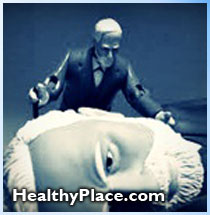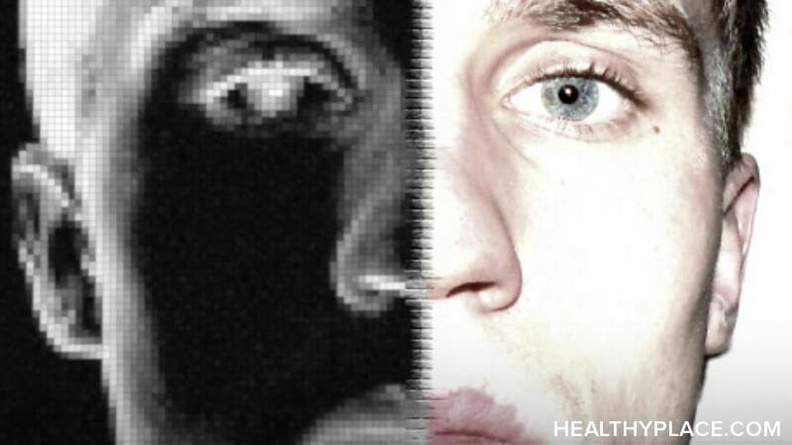Attention Deficit Hyperactivity Disorder: Minimal Brain Dysfunction
Pediatrician and our ADHD expert, Dr. Billy Levin, discusses the importance of properly understanding ADHD in children.
Children with special learning disabilities exhibit a disorder in one or more of the basic psychological processes involved in understanding or in using spoken or written language. These may be manifested in disorders of listening, thinking, reading, writing, spelling or mathematics. They include conditions, which have been referred to as perceptual handicaps, brain injury, minimal brain dysfunction, dyslexia, development aphasia, hyperactivity etc. They do not include learning problems which are due primarily to visual, hearing, or motor handicaps, to mental retardation, emotional disturbance, or to environment disadvantage (Clements, 1966)".
The out-dated term, Minimal Brain Dysfunction (MBD) is no better or worse a name than the other 40 odd names suggested for this condition but it has severe shortcomings. For instance, the word "minimal" refers to the degree of cerebral damage or probably more accurately, dysfunction, which is minimal, compared to cerebral palsy or retardation, but the condition M.B.D. or the ramifications of the condition are certainly not minimal. More recently Attention Deficit Hyperactivity Disorder (A.D.H.D.) and in the teenager Residual Attentional Deficit (R.A.D.) has become acceptable.
It is the most common and largest single problem seen by psychologists and doctors working in this field. The age at which it presents itself stretches from infancy to senescence. Presentation being from Minimal Brain Dysfunction (M.B.D.) in the child to Adult Brain Dysfunction (A.B.D.), Attentional Deficit Disorder (A.D.D.) to Residual Attentional Deficit (R.A.D.) in the adolescent. As the condition becomes better known to more practitioners, more adults are going to be recognised as needing treatment.
The incidence of A.D.H.D. is about 10% of all school children and is found very much more in boys than in girls. The reason is because boys have a higher incidence of right brain dominance than girls do. The male hormone Testosterone boosts the right hemisphere and Estrogen, the female hormone, boosts the left hemisphere. It presents as either a learning problem (left brain immaturity) or behavior problem (right brain excess), or both. If seen by someone familiar with the condition it is easily diagnosed even before the child goes to school. Far too many children are only being diagnosed late, when major problems have already developed. The incidence does appear to be increasing simply because the population is increasing but also because the diagnosis is being made more frequently. This is encouraging but still not enough. A.D.H.D is still a very much under-diagnosed condition.
Diagnosis of ADD
Despite the high incidence, the devastating effects on the individual, and his family, and the prolonged morbidity of the condition, even after school going age, it is frequently misdiagnosed by unenlightened medical and paramedical personnel, or when diagnosed, poorly treated. It should be added that, even when the correct diagnosis is made and the treatment suggested facilities are too often inadequate, lacking entirely or stifled by negativism.
There is probably only one real cause, and that is a biochemical neurotransmitter deficiency in the brain, that is genetic and maturational in its nature. This predisposes the brain to an above normal susceptibility to any stress, be it physical (temperature or trauma) emotional, oxygen deficiency, nutritional depravation or bacterial invasion. Prematurity of the nervous system especially the left hemisphere of the brain also plays a part as premature infants and twins are more susceptible. The maturity lags of these children form an integral and prominent part of the diagnosis.
There are clearly psychological factors, but these are invariably secondary in nature, certainly part of the syndrome, but never the cause. With adequate treatment, most secondary emotional problems fade rapidly.
Being a syndrome all the symptoms are not required to be present to make a diagnosis. It is acceptable to confirm a diagnosis if some of the traits are present, and at that, in variable degrees from mild to severe. It needs to be understood that the milder forms should be recognised if only to receive more understanding and not necessary medication.
In infancy, colic, insomnia, excessive vomiting, feeding problems, toilet problems, restlessness and excessive crying are common. The restless baby becomes an overactive, frustrated and difficult child at nursery school. At school the learning and concentration problems develop resulting in underachievement and poor self-esteem. At first the reading problem manifests (auditory imperception) but not early maths. Later when story sums are done the maths takes a down turn. These students cope better with Geography than with History. Better at Geometry than Algebra and usually love Art and Music and especially action shows on television. All these are due to right hemisphere talent and or left hemisphere immaturity. Gradually the activity level slows down at puberty or later, but the fidgety and restless nature remains and sometimes the impulsiveness as well. The last to fade and usually the most troublesome are the frustrations and the inability to concentrate on a task for very long. Yet in certain instances they can focus their attention more easily, provided they are involved in a right brain activity such as chess.
Problems of co-ordination in the early years manifest as lags in ability to cope with the expected age related tasks but later the child is often clumsy and either poor at ball games or has an untidy handwriting or both. Yet some are highly skilled at ball games? Inco-ordination as a maturity lag and lack of inhibitory function sometimes results in enuresis (bed wetting) and encopresis (soiling pants), and is more prevalent during periods of stress but is not caused by stress.
These children have severe problems with auditory perception and verbal concentration. The inability to concentrate for any length of time on a given task, and the ability to be so easily visually distracted, makes learning a major problem. Yet learning on a computer, which is visual/mechanical is a pleasure.
With the passing of time, their developmental disability, especially in language, is now coupled with a slowly developing educational lag, to a point where they are unable to cope with the work expected of them in school. At this point, the daydreaming problem starts to show itself. (These children cease to daydream when tasks are set at their level of ability, and they can enjoy the success). The vicious cycle soon establishes itself where poor achievement leads to unfair criticism to poor self-esteem, demotivation, frustration and failure.
The aforementioned negativity is very poorly tolerated by the A.D.H.D. child who becomes supersensitive to criticism and often very aggressive and antagonistic to any form of discipline. In the teenage years depression often develops. He has constant excuses to explain inability. His impulsive nature often allows him to get into trouble before he realises what is happening to him. He will either act impulsively first, and then think about the situation afterwards. Or having erred, will explain with an untruth. Although he might even regret it, he will be too proud to admit it. These children clearly first act and then think and this often accounts for their accident proness, or getting into hot water at school or with the police. They also struggle to sequence events and organize themselves, and in so doing create even more problems for themselves.
By the time they reach adolescence and the difficult rebellious teenage years, they are often dropouts, delinquents, anti-social and underachievers. They are also most likely to try anything to lift them out of this tragic situation including the use of habit-forming drugs and alcohol.
The diagnosis is made by correlating the findings of a specific neurological examination, and then matching these up with the detailed history taken from both parents about themselves, the child, and the rest of the family. Reviewing school reports has great diagnostic value provided that the reviewer has insight. Electroencephalograms (EEG) have no value either in diagnosis or treatment unless epilepsy is suspected. Special questionnaires (the Conners modified rating scale) completed by the teacher and the parents prior to treatment and again on a regular monthly basis have incredible vale. They can be used to confirm the diagnosis and to monitor medication.
Clearly the identification of these children requires an expansion of the traditional type of examination which is incapable of uncovering many of the subtle signs and symptoms of A.D.H.D. (The diagnostic and statistical Manual is not sufficient to base a diagnosis on)
The teacher at nursery school or at school is in a very good position to compare the child's performance with other children and will often notice discrepancies and lags, but not know their significance's. New awareness is making early diagnosis and intervention possible from as young as 3 years of age or even younger.
The sad thing is that many children are only diagnosed when they bring home unsatisfactory school reports and even then they are often labeled as lazy, naughty or lacking in concentration, and are allowed to repeat a year before someone suggests a psycho-neurological examination.
Because the parents often judge their ability to "parent" by the child's success they often feel inadequate despite there being other normal children in the family. On the other hand because of the genetic nature of this condition, one of the parents may well be immature and impulsive in his (usually "his") actions, and this leads to increased stress between parents and child, as well as increased marital problems. Actually the number of hasty, unhappy marriages ending in divorce in A.D.H.D. families is unusually but understandably high. Prior to marriage an impulsive sexual act leads to the birth of an illegitimate baby, which is then given up for adoption, and this probably explains why so many adopted babies have A.D.H.D.
Treatment of ADHD
Successful treatment of ADHD requires not only remedial work and medication, but also a very definite attempt to inform the parents fully of the implications of the total situation. They should be encouraged to continue gathering information to give them more insight and understanding, and so become an integral part of the therapeutic team.
The treatment of ADHD depends on the type of dysfunction, the severity of it, the amount of secondary emotional overlay already present, the IQ of the child, the co-operation from parents and school, and the response to medication. The overactive, high IQ behavior problem child with little or no learning problems will respond well to medication and sometimes needs very little else. The underactive (learning) perceptual problem child requires early intensive and prolonged remedial therapy after medication has been adjusted to the optimum dose. Children with learning and behavior problems will require both remedial therapy and medication and a lot more patience from everyone concerned both at home and at school.
For some very young children, but not all, a special diet that excludes artificial flavoring and colouring will improve their behavior and concentration to a point where less medication is given. It appears that diet is an aggravating factor in an already existing neurological condition, and not the cause. Older children do not respond very well to the diet.
Psychotherapy is seldom required unless there is major family psychopathology, but on-going parent counseling is vital.
For a child with a reading problem (dyslexia), there are specific reading programs (e.g. paired reading). There are also specific programs for hand writing (dysgraphia), for spelling problems (dysorthographia) and dyscalculie (maths problems). For the most difficult of all -Dysrationale, (no logic) one can not even convince them they have a problem, let alone treat it, until they reach "rock bottom". For some, a coloured lens (Urlin lens) named after Helen Urlin, a remedial teacher, can do wonders for reading. The human retina rejects black print on a white background. Far better for reading is black print on a soft yellow background.
Although Ritalin (Methylphenidate) is the most effective and frequently used medication, there is certainly place for other medication.
The medication used for A.D.H.D. is neither habit-forming nor dangerous, but requires careful selection and dosage monitoring to achieve success. Medication does not cure but allows the child to function closer to his expected age norm until he matures. The medication stimulates the formation of deficient biochemical neuro-transmitters in the brain and so normalises neuronal function. After enlightening both teachers and parents and reassuring the child, a trial of medication is started and titrated to the optimum dose and timing on an every day basis. The dose is individually tailored to suit each patient by titration, disregarding the child's age or weight. For some children the dose over weekends and holidays can be reduced or even stopped. This is done on a trial basis. Some children will need medication every day. There are also specific methods to determine when medication should be stopped. There are no long-term side effects to Ritalin what so ever. The minor short-term side effects present no problem to good management.
The time required for maturity varies from a few months to a few years, and in rare individuals medication could be a lifelong maintenance. Periodic "off medication" holidays are not essential, but may be helpful to assess the further need for medication. Weekends off medication are possible, but only when some success has been achieved and an "off medication trial" proves successful.
There are perhaps five aspects that need re-emphasizing.
FIRSTLY, the underactive (hypoactive) child who does not have a behavior problem and consequently is often overlooked because he is so quiet and loveable.
SECONDLY, the very high IQ (gifted) child who has A.D.H.D. and achieves average marks despite his high IQ, and presents a behavior problem or an under achiever.
THIRDLY, the older child (teenager), who has outgrown some of the behavior problems but is underachieving, could still benefit from treatment and must not be overlooked.
FOURTHLY, the adult who still has a problem and has never had treatment, had inadequate treatment, or had treatment prematurely stopped, should not be over looked. They are entitled to treatment. And what is more, it is just as successful as in the child if correctly used.
FIFTHLY, many a parent cannot come to terms with the idea of medication, despite the American Surgeon- General's investigation a few years ago, indicating not only the need to medicate, but also the safety of psychostimulants. In South Africa the Health Department has come to the same conclusion. The same health department has more recently published their definite condemning of smoking as a major health hazard. Under these circumstances, it is difficult to understand the parents' reaction to medicating their children, when some of these parents condemn medication while being smokers themselves. Nevertheless a non-condemning, sympathetic attitude must be adopted towards these parents until they come to terms with their own anxieties and their children's problems.
Any attempt to explain the intricacies of the human brain to people is like a poorly sighted observer looking at a piece of complicated machinery in a darkened room through a non-strategically placed peephole, and describing it to a hard of hearing audience.
Despite this we do know that we have a right and a left cerebral hemisphere connected to each other by the corpus callosum. Each side has four lobes, each with a specific function. The "cross over" function allows the left hemisphere to team up with the right side of the body and the right hemisphere to team up with the left side of the body. The speech center is usually situated on the left side of the brain even in most left-handed people. Speech and thought are our most highly developed functions and are found only in man. The left brain is the dominant hemisphere in most people (93%) and therefore we are predominantly right handed and become aware of the "right" early on in life. There is also no confusion created by the opposition side, unless the left hemisphere is less effective or immature.
The higher cortical functions that are acquired offshoots of speech, namely reading, writing and spelling and logical maths are mainly in the left hemisphere, and they are the talents most sought after in school.
The verbal input (listening to words) and output (speech) on the left side of the brain are focally concentrated and a conscious processes, executed in an orderly, logical and sequential manner. The right brain, on the other hand, which functions in a less dominant capacity, is visio-spatially orientated. It processes information more vaguely than the left brain. It processes information simultaneously and holistically and is far more mechanically orientated than the left brain.
The left brain is clearly the thinking (inhibitory) side while the right brain is the doing (activating) side. It stands to reason, and happily so, that the dominant left-brain "thinks" first, and then allows the right brain to "do" thereafter. This maturation process occurs in a predetermined developmental pattern. This arrangement in no way implies that the right brain is inferior to the left in any way. Both sides of the brain have their own, but very different talents.
There is a maturational difference between boys and girls in that boys' right brain is often dominant and thus they tend to "do" rather than "think" while maturing. This tendency to right brain dominance is a disadvantage in boys at the age of 6 years, when we tap mainly the left brain for school readiness. Consequently six year old girls are more mature than boys are and boys have far more and behavior and learning problems than girls.
Clearly there is a maturing process that allows the left brain to become the dominant side, by the time the child has to go to school. Each side specializes in certain functions that are suited to our developmental needs.
Our genetic talents are only molded by our environment. A talent in the wrong place, such as temperament on the right side, and developing at the wrong time could well be a disadvantage. A prerequisite to understanding unusual dominance or late developing dominance is the knowledge of the developmental norms of the child.
If the left brain is more highly developed, it is also more likely to be more susceptible to insult from any cause, be it genetic inherited immaturity, trauma, anoxia (lack of oxygen) or inflammation. Any insult to the left hemisphere resulting in failure to mature, thus allowing the right hemisphere to dominate will disrupt functions.
With Cerebral Dysfunctions the tendency is for some or all of the right brain functions to gain the upper hand. This clearly explains so much of the unusual patterns of behavior (due to right brain excess) and lack of learning (due to left brain immaturity) in A.D.H.D. children. It is sometimes difficult to decide whether a particular pattern of behavior is due to increased right-sided function or decreased left-sided function or equal ability causing left-right confusion. There can be no doubt however that loss of left brain dominance is a disadvantage to learning. Equally, right brain dominance for doing first and thinking later is a built-in troublemaker, with a tendency to be left-handed.
There are a number of interesting superficial anatomical deviations (dysmorphic features) that can be seen more often in A.D.H.D. children. I refer to:
- Epicanthic folds of the eye
- Ocular hyperteleorsism (widely spaced eyes giving the appearance of a wide nasal bridge)
- Curved little finger
- Simian palmer fold (a single palmer fold)
- Webbed toes (between 2nd and 3rd toe)
- Unusually large 1st toe space
- Absent or non-dependant ear lobes
- High palate
- Facial asymmetry
- F.L.K. (Funny looking kid)
If one recalls that the basic elements in the embryo which develop into brain come from Ectoderm, and that all skin and superficial structures also develop from Ectoderm, then any unusual cerebral development certainly could be accompanied by mild skin and superficial deviations. These unusual features could not be caused by emotions and the behavior patterns likewise are not caused by emotions, but by neurological variations.
Some time ago, in the "British Practitioner" a comment was made that there are no emotional conditions, but only emotional reactions to neurological conditions. The emotional reactions of A.D.H.D. children, whether they have a hyperactive behavior problem, a hypoactive learning problem, or a mixed type are most likely secondary to the neurological disability. The family history also suggests a genetic etiology.
Some research has shown that in some cases an irregular and unusual cellular arrangement exists on the left side of the brain as seen under a microscope. Electroencephalograms can sometimes show immature or asymmetrical brain waves but this is not diagnostic. Chromosomal studies have also been used to suggest the genetic origin as a possible causative factor.
From a biological point of view, early, yet suggestive evidence is available to suggest that a biochemical defect does exist in many children with learning disabilities in the form of a neuro-transmitter deficiency. This explains why replacing these deficient neuro-transmitters with psychostimulant medication can in some cases bring about such vast improvements so rapidly.
One cannot survive without water, a natural body requirement, never the less the drinking thereof is not an addiction. Medicating with psychostimulants is not unlike replacement therapy in a diabetic or thyroid deficient patient. Replacement therapy cannot therefore be labeled "drugging". That there are no addicts to Ritalin is therefore not surprising.
The pioneering work of the American neuro-surgeon, Roger Sperry, on the split brain, over the last few years has shed much light on the left and right hemisphere brain function and helped to dispel many old beliefs and theories. Perhaps now that Dr. Sperry has been honored by the medical fraternity for his research by bestowing on him the highly sought after Nobel Prize for medicine (1981), older psychological ideas will die gradually and make for new concepts in neuro-psychology. This would hopefully allow anxious and doubting teachers to accept the idea that the brain (while still in the head) they teach at school, is still part of the human body and the doctor's domain.
Therefore, the basic physiology, pathology, diagnosis and treatment also remain medical. The teacher does in fact become part of a new para-medical team in co-operation with speech therapists and remedial therapists. Psychotherapy is seldom required, but when necessary, essential.
The final comment must be that if the medical practitioner hopes to be elected as the co-ordinator of the diagnostic and therapeutic team, he must prove his worth by acquiring the new knowledge that is available today."
About the author: Dr. Billy Levin (MB.ChB) has spent the last 28 years treating patients with ADHD. He has researched, developed and modified a diagnostic rating scale of which he has evaluated over 250 000 in about 14 000 case studies. He has been a speaker at several national and international symposiums and has had articles published in various teaching, medical and educational journals and on the Internet. He has written a chapter in a textbook (Pharmacotherapy edited by Prof. .C.P. Venter) and received nominations by his local branch of SAMA for a National award (Excelsior award) on two occasions."
APA Reference
Staff, H.
(2008, December 2). Attention Deficit Hyperactivity Disorder: Minimal Brain Dysfunction, HealthyPlace. Retrieved
on 2026, March 4 from https://www.healthyplace.com/adhd/articles/attention-deficit-hyperactivity-disorder-minimal-brain-dysfunction
 Sooner or later just about everyone will encounter a colleague or friend with an eating disorder. Between five and 10 million people in the United States alone suffer from compulsive eating, anorexia or bulimia, and most of them are women.
Sooner or later just about everyone will encounter a colleague or friend with an eating disorder. Between five and 10 million people in the United States alone suffer from compulsive eating, anorexia or bulimia, and most of them are women. Mary Mitchell brings civility to life. She established The Mitchell Organization in 1989 as a locus for her growing professional activities: columnist, author, speaker, trainer, consultant and coach. Mary is renowned for removing the starch from etiquette, a subject often perceived to be stuffy. More than 50 major corporate clients have learned and profited from her cogent observation,"Your company's competitive advantage is directly related to the social and communications skills of its employees." Her books have been translated into five languages.
Mary Mitchell brings civility to life. She established The Mitchell Organization in 1989 as a locus for her growing professional activities: columnist, author, speaker, trainer, consultant and coach. Mary is renowned for removing the starch from etiquette, a subject often perceived to be stuffy. More than 50 major corporate clients have learned and profited from her cogent observation,"Your company's competitive advantage is directly related to the social and communications skills of its employees." Her books have been translated into five languages. Sometimes parents are afraid that educational materials about eating disorders will stimulate an eating disorder in their teenager. They also fear such material will encourage a teenager with an eating disorder to try new and different methods of acting out the illness. Sometimes loving parents are afraid to know specific information about eating disorders themselves. They think that if they ignore the subject it will keep the disorder out of their lives.
Sometimes parents are afraid that educational materials about eating disorders will stimulate an eating disorder in their teenager. They also fear such material will encourage a teenager with an eating disorder to try new and different methods of acting out the illness. Sometimes loving parents are afraid to know specific information about eating disorders themselves. They think that if they ignore the subject it will keep the disorder out of their lives. Traditional talk therapy fell out of favor in recent years because drug therapy was considered to be easier, cheaper and less time-consuming. But a form of psychotherapy, cognitive behavorial therapy could bring face-to-face treatment back into the limelight. In this form of therapy, patients learn coping strategies to counteract the obsessive thoughts of failure, inadequacy and pervasive gloom that typify depression.
Traditional talk therapy fell out of favor in recent years because drug therapy was considered to be easier, cheaper and less time-consuming. But a form of psychotherapy, cognitive behavorial therapy could bring face-to-face treatment back into the limelight. In this form of therapy, patients learn coping strategies to counteract the obsessive thoughts of failure, inadequacy and pervasive gloom that typify depression. Who comes first,
Who comes first,  For years, parents of anorexic girls have been told to avoid arguments over food and give up their failed fight for control over their daughters' bodies. But when Claire and Bob Donovan walked through the doors of Children's Hospital of Michigan with their bone-thin daughter Megan, they were put squarely in charge.
For years, parents of anorexic girls have been told to avoid arguments over food and give up their failed fight for control over their daughters' bodies. But when Claire and Bob Donovan walked through the doors of Children's Hospital of Michigan with their bone-thin daughter Megan, they were put squarely in charge.
 Part of the reason is ageism: people, including doctors and old people themselves, expect the elderly to feel down and do not consider this as a treatable illness.
Part of the reason is ageism: people, including doctors and old people themselves, expect the elderly to feel down and do not consider this as a treatable illness. UK legal resources for ADHD problems related to education, the criminal justice system, health and financial assistance.
UK legal resources for ADHD problems related to education, the criminal justice system, health and financial assistance.
 BDD can lead or take after other psychiatric problems as well. Depression, obsessive-compulsive disorder, eating disorders, anxiety issues, agoraphobia, and trichotillomania (hair pulling) are all problems that commonly follow or trigger BDD.
BDD can lead or take after other psychiatric problems as well. Depression, obsessive-compulsive disorder, eating disorders, anxiety issues, agoraphobia, and trichotillomania (hair pulling) are all problems that commonly follow or trigger BDD.